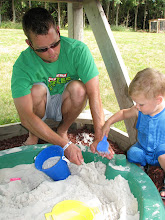As I type this I want you to know these thoughts have been swarming around my brain for the past few weeks. Inspiring to take a new and hard look at my current grading practices. After reading many different pieces of information I've come to the startling conclusion, they don't mean much. Reflecting upon my gradebook creation some five odd years ago, participation rang true as the cornerstone. Though I still believe it is vital to participate for one to reach results, does that participation equal mastery of skills/content/standards?
A recent article from the magazine Educational Leadership entitled "Grading What Matters" written by Tony Winger really opened my eyes. I have been including things, that would fall under a heading of Personal Responsibility (behavior, effort, attentiveness in class, punctuality), impact my student's academic grade.
Here is a common example from Physical Education class, should those that forgot to bring clothes to change into be allowed to participate? My snap reaction is "No!" they weren't responsible enough to remember to bring them and they are essential to one's participation. Comparison to a regular education classroom- when a student forgets to bring their book, pen/pencil or other required materials does the teacher bar them from participating in class? If so does the teacher hold this forgetfulness against them in the gradebook? I don't think so, so why as a professional do I not allow my students to participate when they forget their clothes?
This among many other topics have swam around my brain as I pick apart and reassemble the pieces moving forward.
I just finished reading Rick Wormeli's book "Fair Isn't Equal, A Guide to Differientiated Instruction." Fo those that haven't read it or seen him speak, grab a copy and sign up for the seminar. I had the pleasure, as well as my colleges at Van Meter, to attend a professional development day where he was the keynote speaker. His book brings up many great points especially standards based grading. Aren't we all supposed to teach to our own subject's standards and benchmarks?
For those who are reading this and hoping I'm going to radically overhaul my current grading practicies, not this year. But wait, what I'm starting to put together will not only empower my students, but create a grading system that not only meets district standards/benchmarks but allows for more accurate feedback to not only parents but students regarding mastery. Now that was a run on sentence! Not an english major! Come back often to see what other new information I am adding to my future grading practices.
Who have I impacted lately? Right now I feel like myself. It is hard at times to critically analyze one's current practicies and try to peice together the good and discard the bad. Moving forward, looking to lay the foudation soon.
